News
Highlights of the Includ-EU final conference
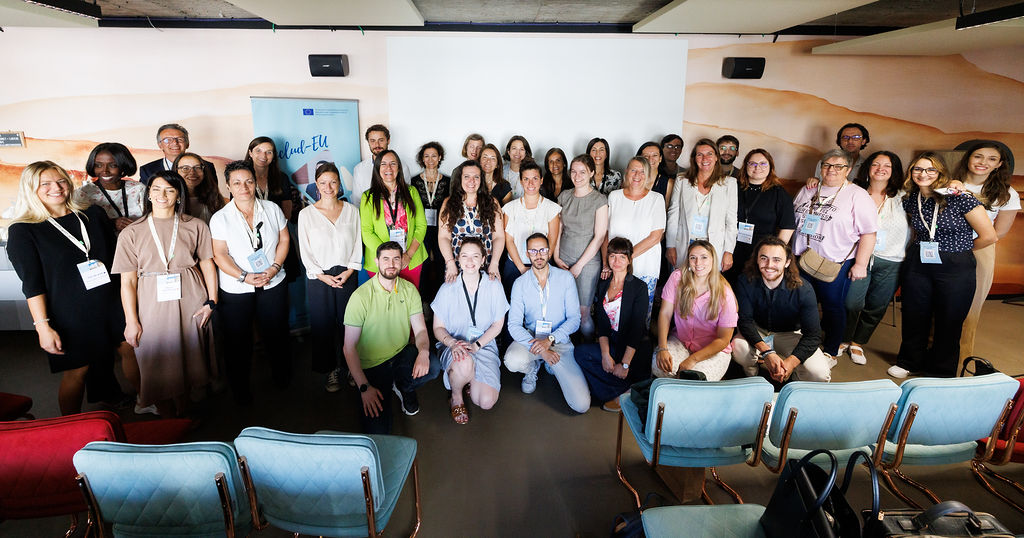
In the world of regional integration policies, the Includ-EU project spearheaded an exceptional initiative to foster collaboration among European regional and local authorities and various stakeholders dedicated to integration practices. This endeavour, aimed to facilitate transnational knowledge exchange and enhance the inclusion of third-country nationals at the local level.
Let’s dive into the highlights of the Includ-EU final conference held in Brussels on September 6-7 2023.
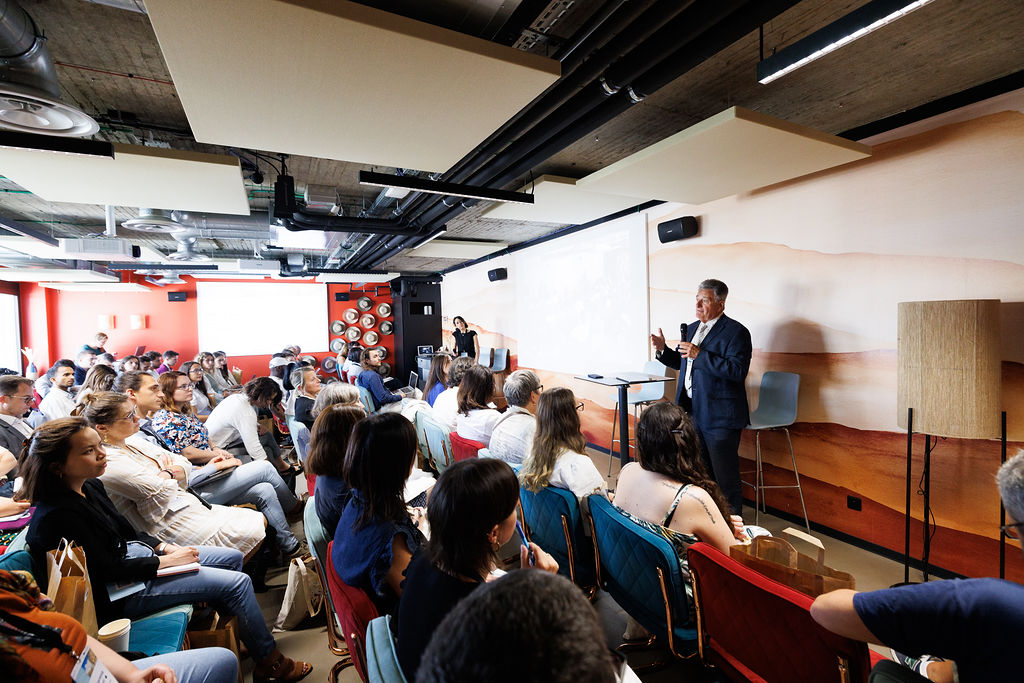
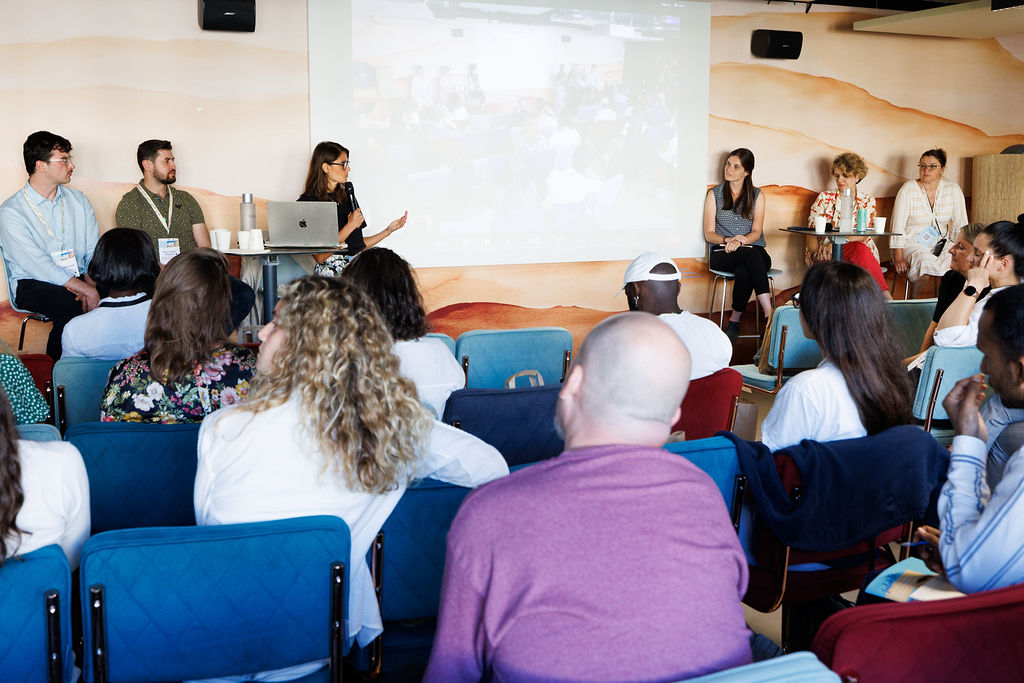
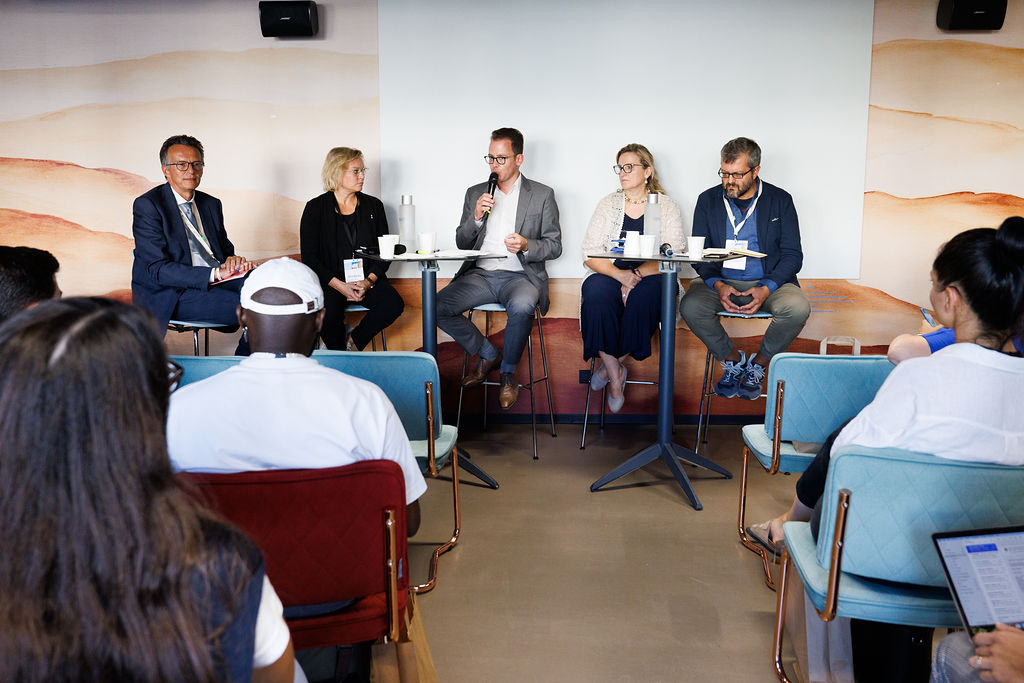
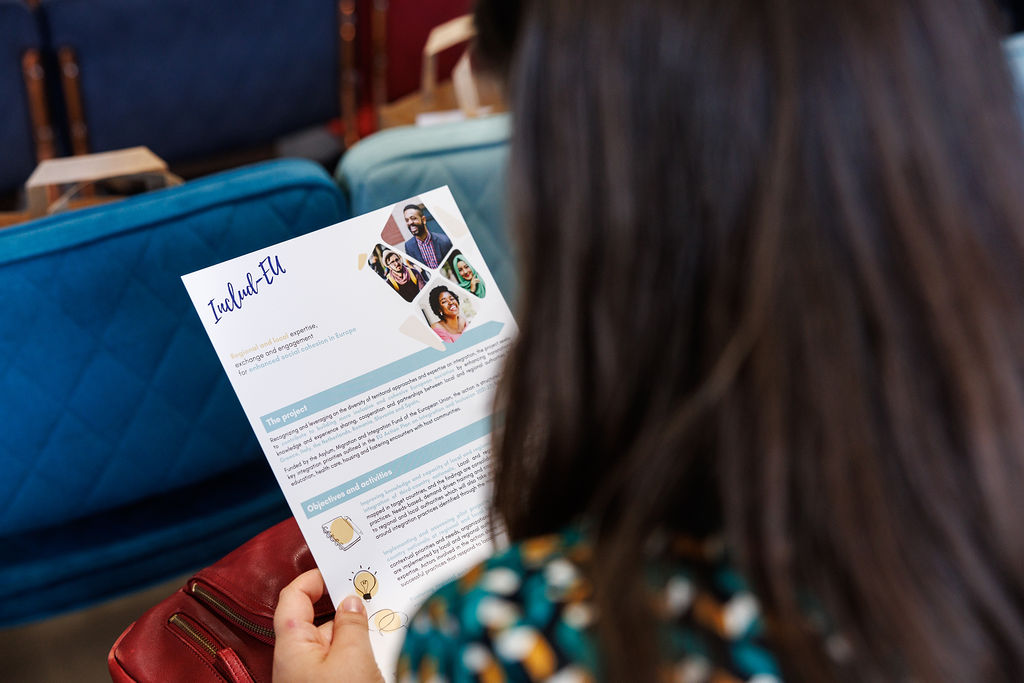
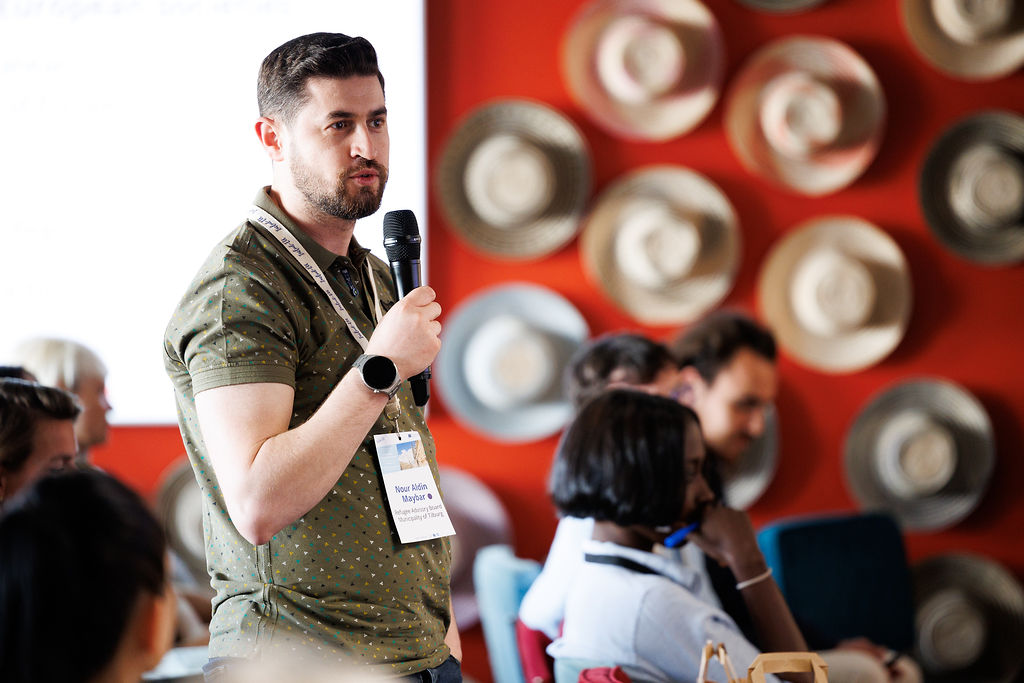
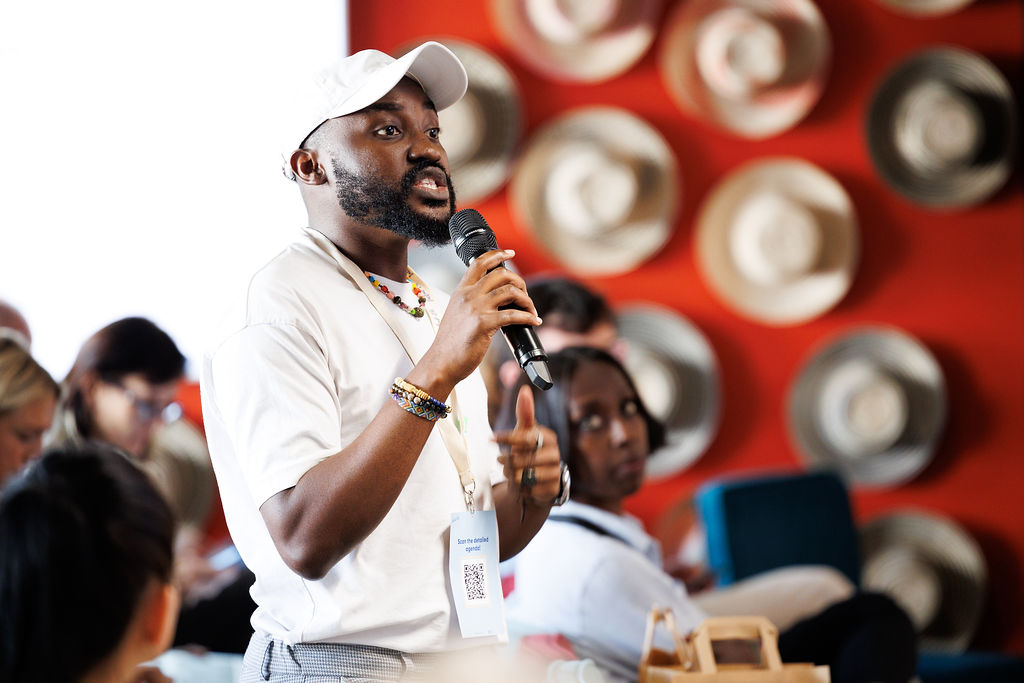
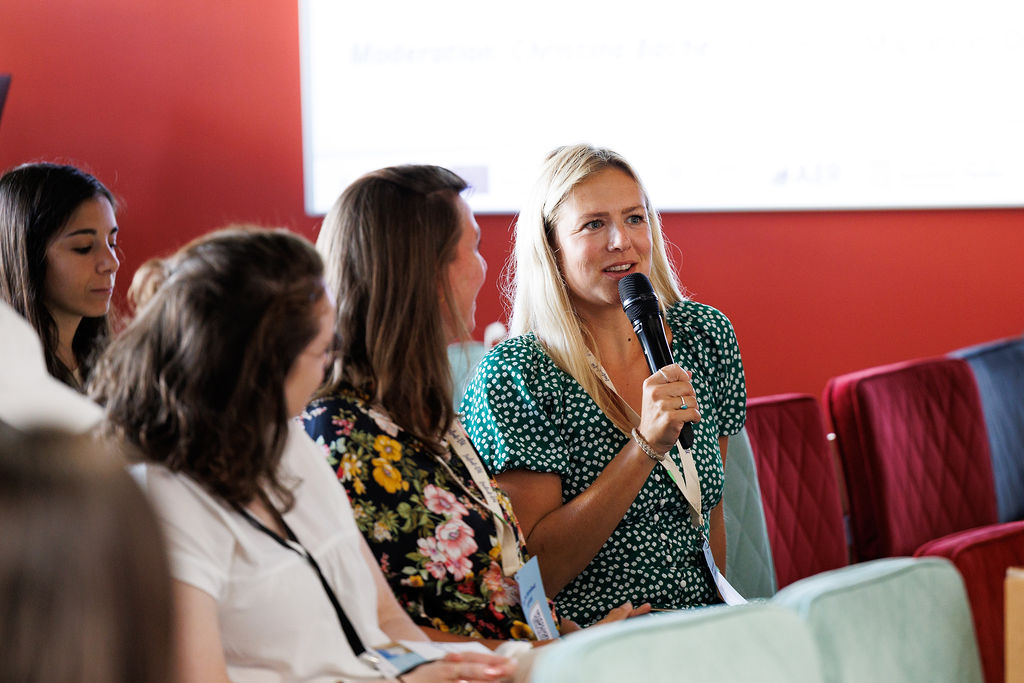
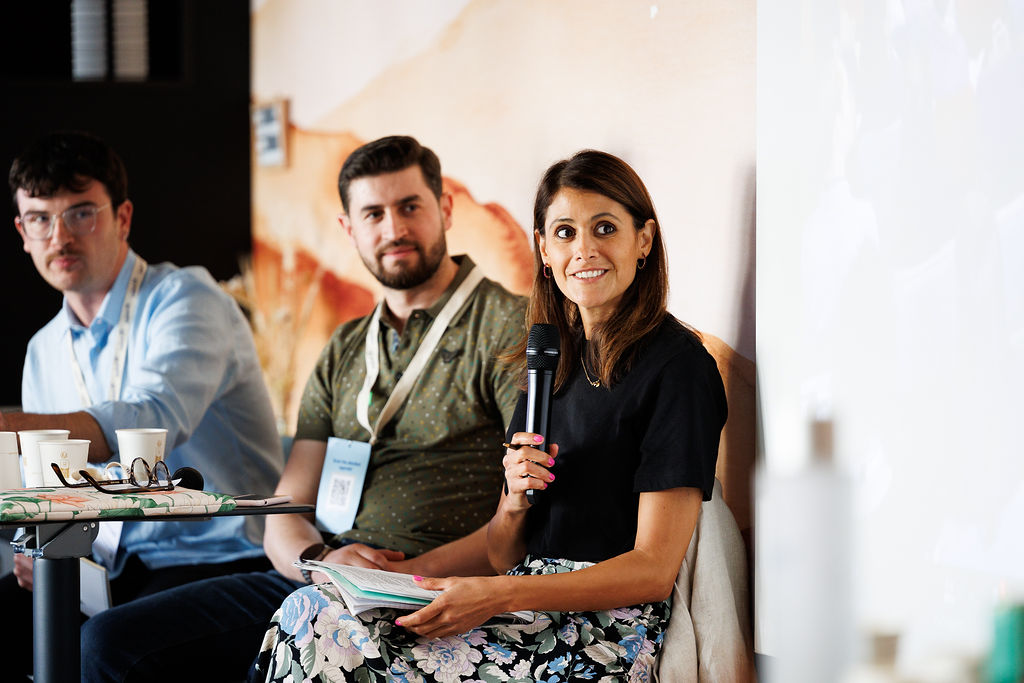
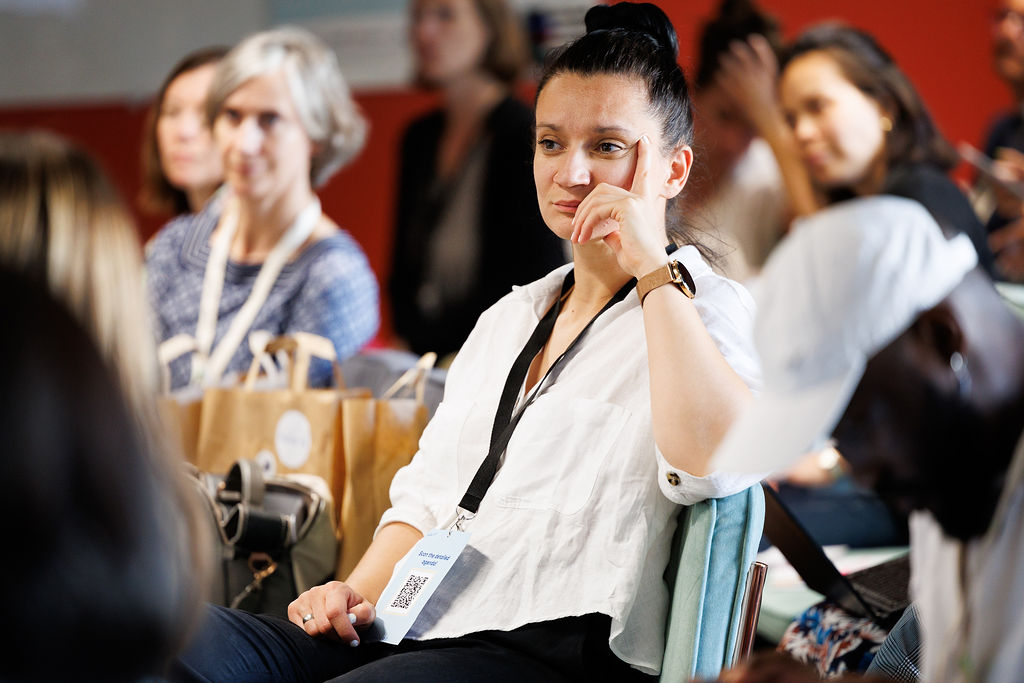
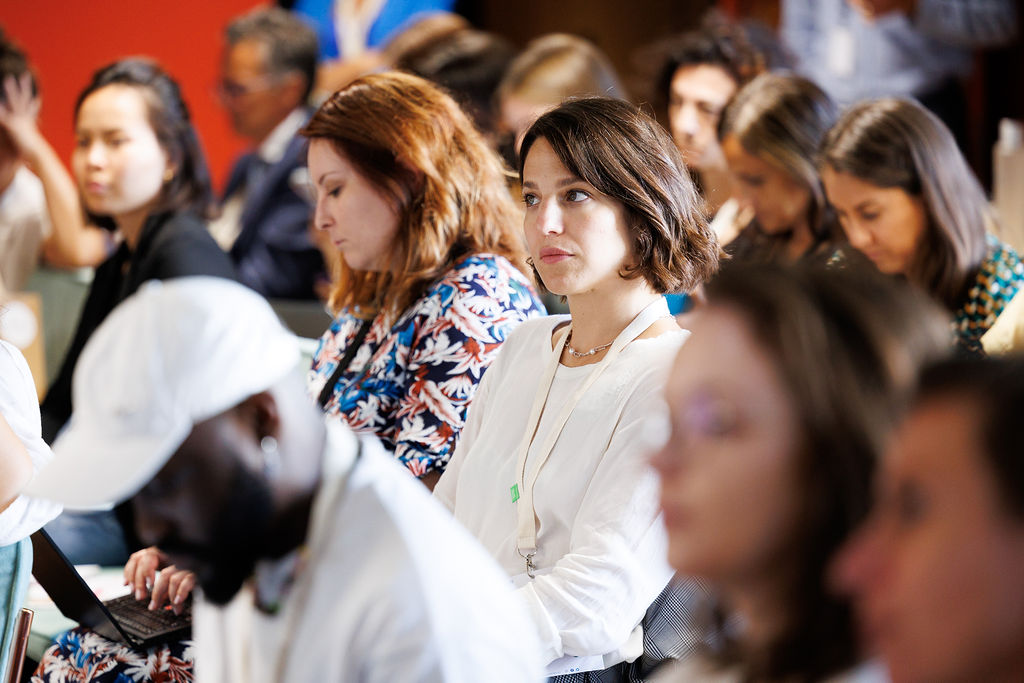
Transcending boundaries with peer learning
One of the core strategies of the Includ-EU project was to organise regional workshops that brought together participants from different European regions with varying levels of expertise in integration policies. These workshops served as platforms for structured exchanges, knowledge sharing and the establishment of transnational partnerships. The goal was to create a network of regions and local authorities that could draw on diverse approaches and practices to foster integration.
In addition, Includ-EU nurtured a virtual community of practice. Thematic webinars and a comprehensive communication strategy via the Includ-EU website played a pivotal role in sustaining this online community. These webinars provided a space for experts and stakeholders to share insights, discuss integration challenges and explore innovative solutions.
The grand finale of the Includ-EU project was the final event held in Brussels (BE). This event aimed to present the lessons learned throughout the project, including tangible improvements in integration at the regional and local levels. It also emphasized the value of structured transnational exchanges and the capacity-building of regional and local authorities.
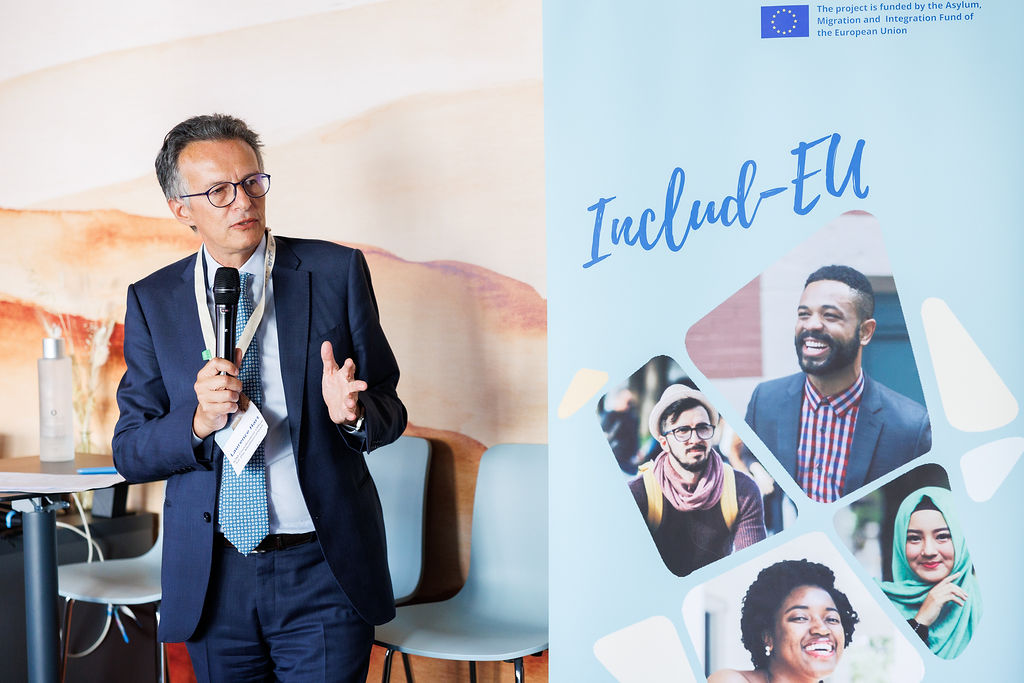
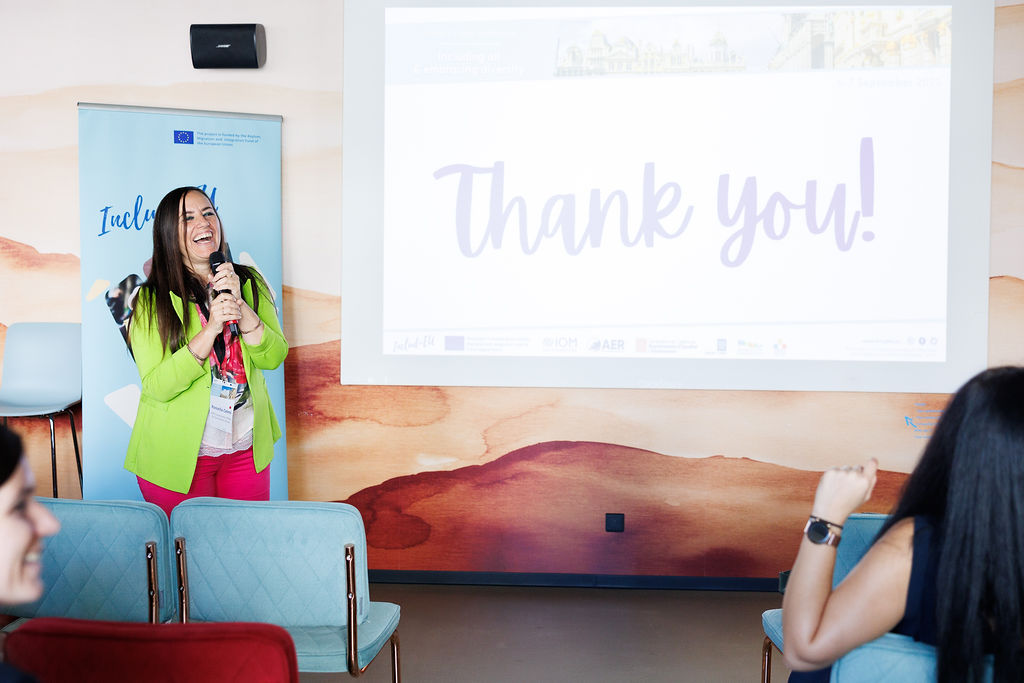
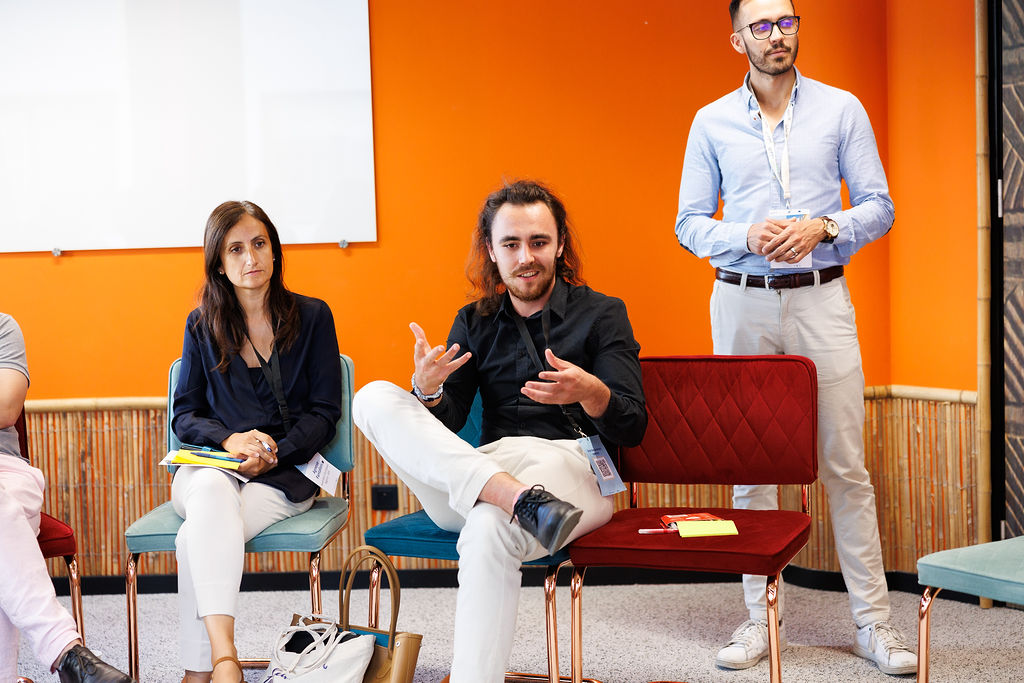
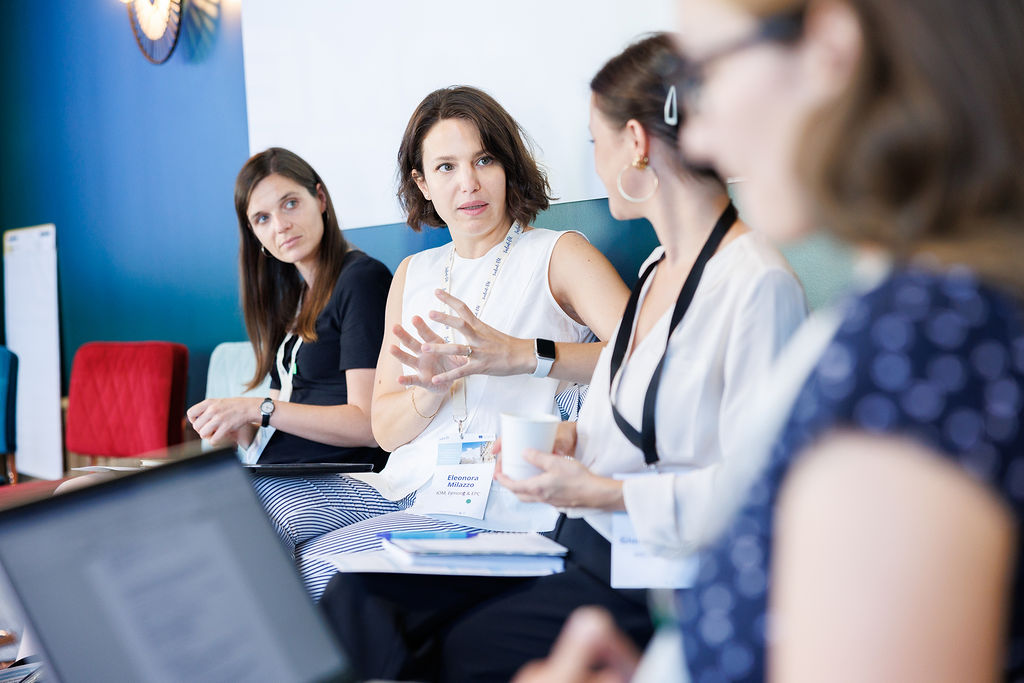
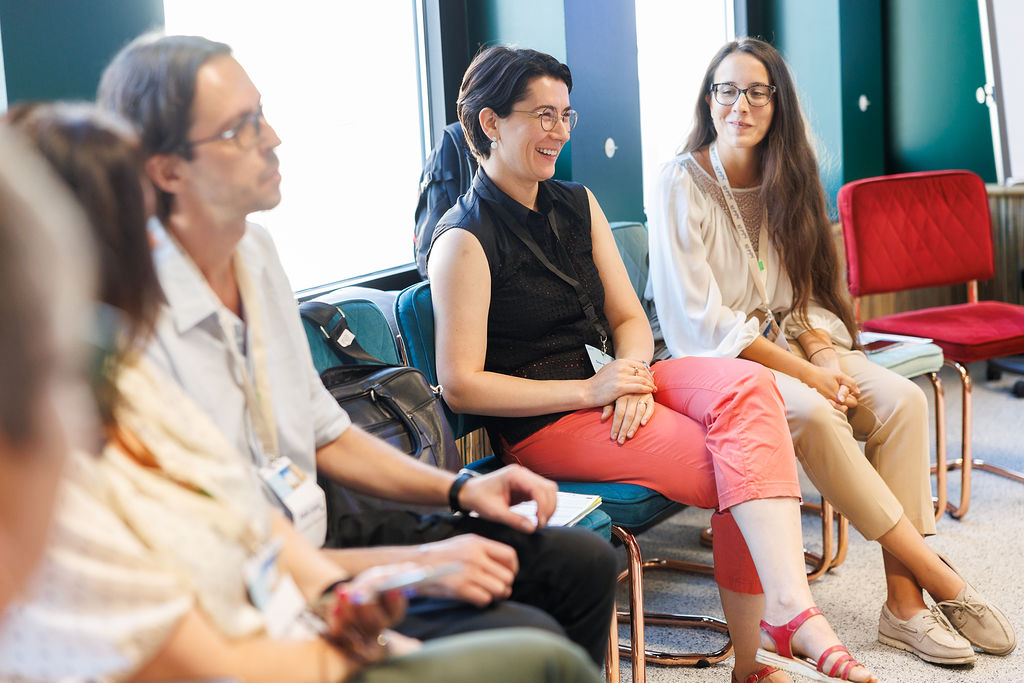
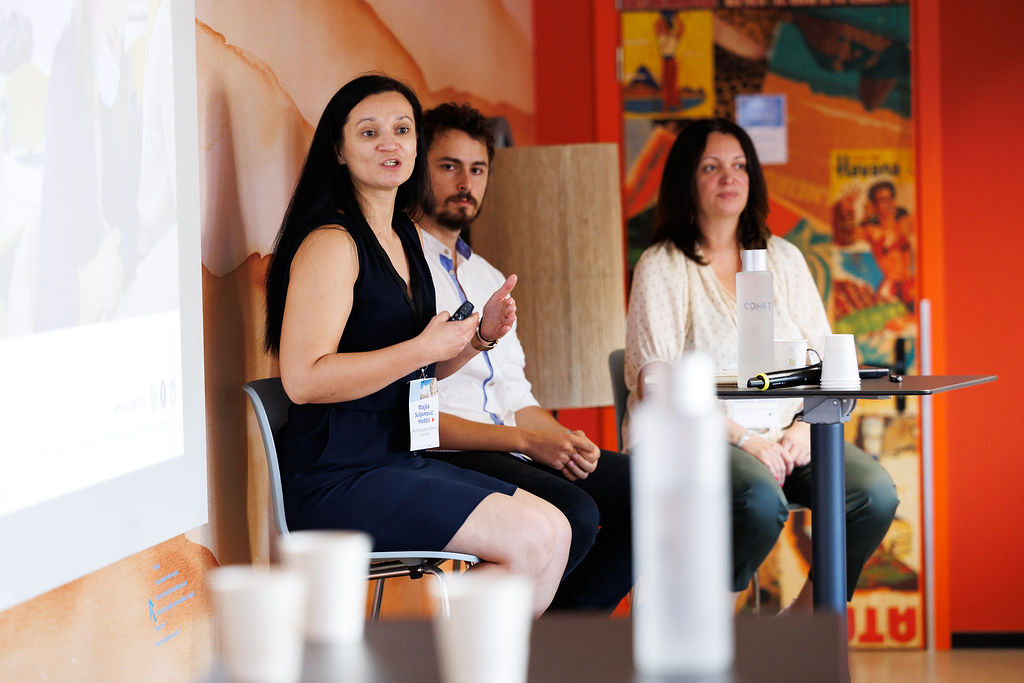
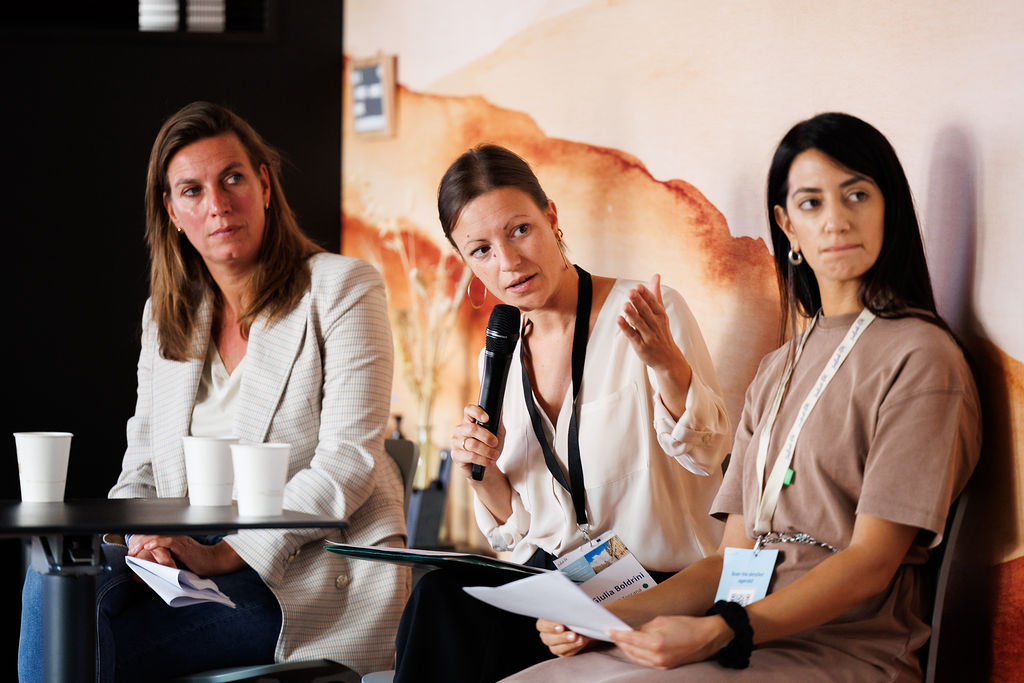
A thematic focus on diversity
The theme chosen for the final event was “Including all & embracing diversity”. This theme aligns with the underlying value of the project which looks at cross-cutting inclusion policy and practices, and was defined based on feedback from Includ-EU partners and participants of the March 2023 regional workshop in Cluj-Napoca, Romania. The Includ-EU final event specifically explored intersectionality and participatory approaches in integration policies, recognizing that diverse backgrounds and experiences intersect to shape individuals’ lives.
Transnational knowledge sharing
Experts discussed the value of peer learning in accelerating change and emphasized the need for clear indicators of success. They highlighted the role of intercultural approaches and the importance of involving the private sector in integration efforts. The event underscored the vital role of cities and regions in integrating newcomers and creating inclusive communities. It emphasised the challenges posed by anti-migration narratives and the need for multistakeholder collaborations for effective policymaking.
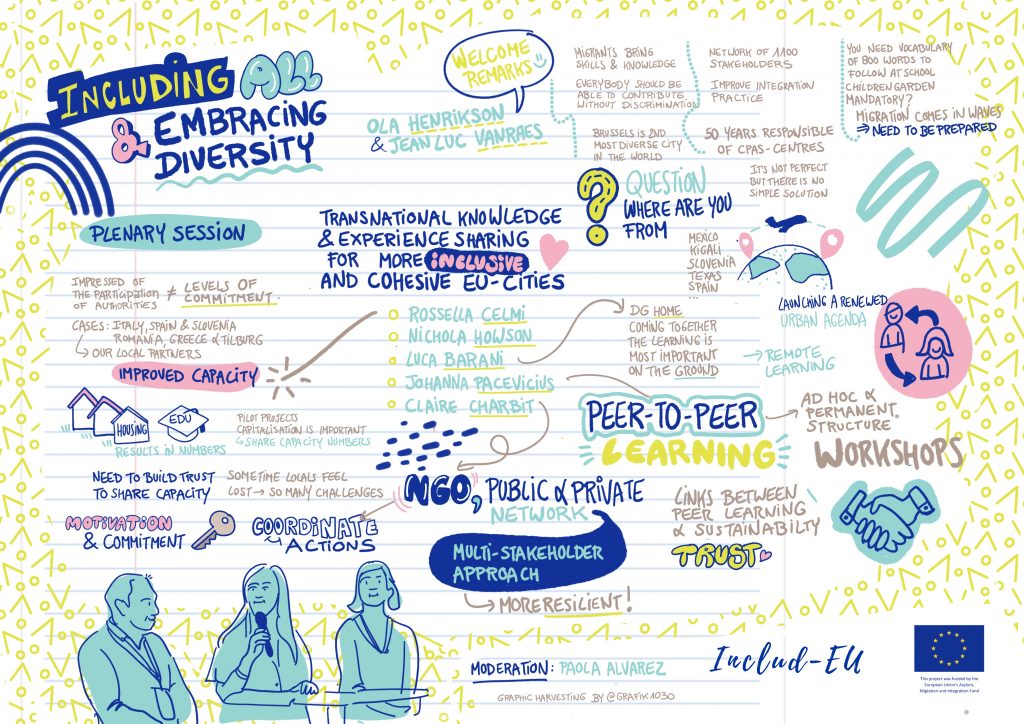
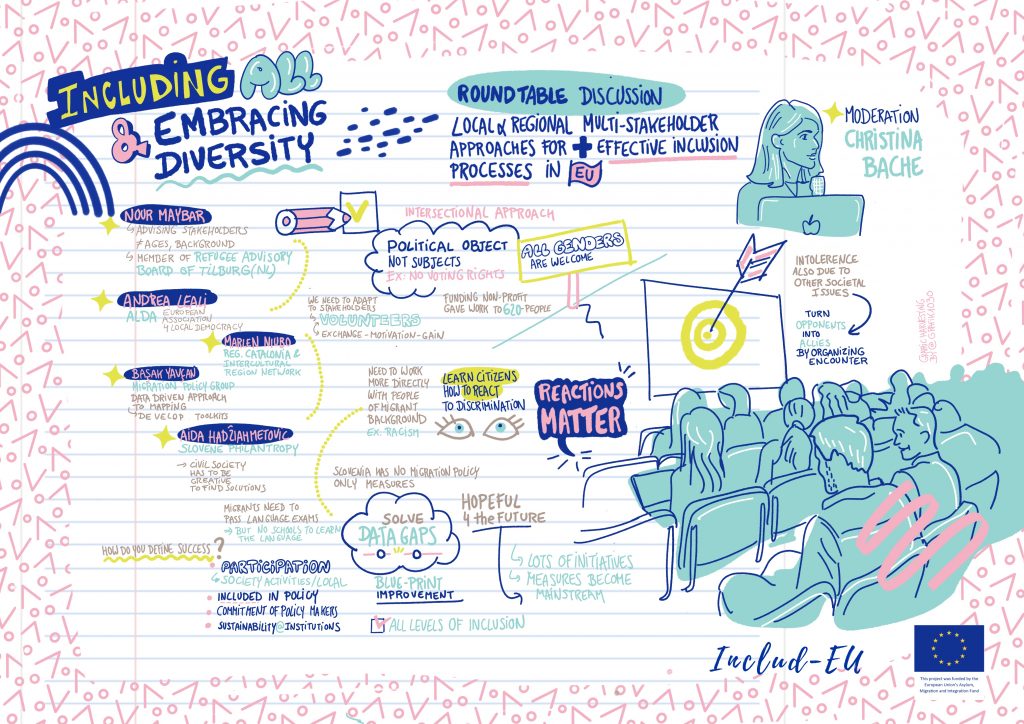
Inspiring policies & practices in Europe
During the event, participants had the opportunity to explore good practices through study visits and workshops. These activities showcased successful integration measures for vulnerable migrant groups and highlighted the importance of collecting data on discrimination episodes. The study visit to the Brussels Capital Public Services, was an opportunity to learn more about using an intersectional lens in policymaking.
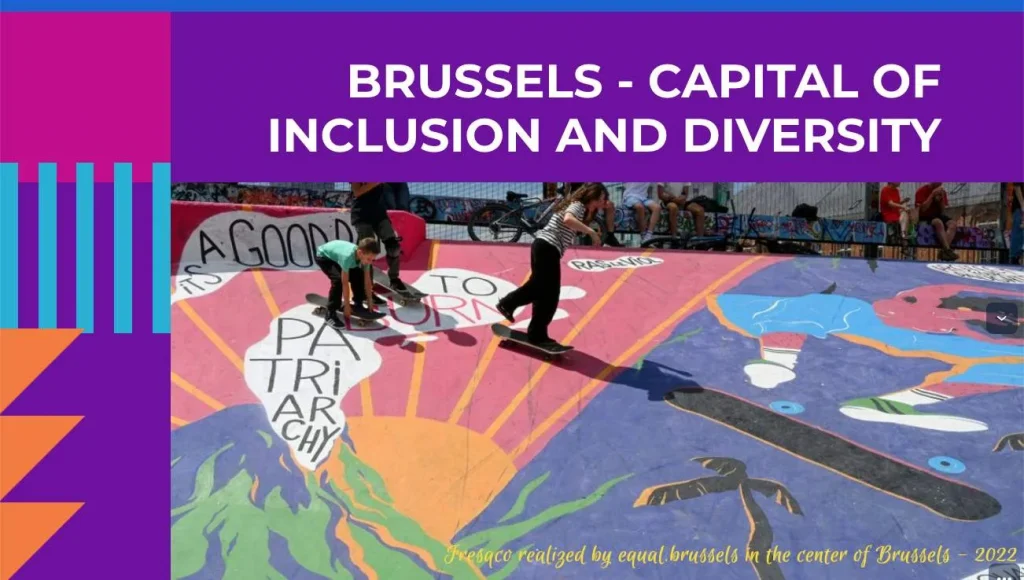
The final day of the event delved into the Includ-EU pilot initiatives, implemented in six countries. These actions impact local and regional stakeholders directly:
- psycho-social mentoring between young girls migrating alone and female university students in Catalonia
- innovative social housing solutions in Tuscany
- the implementation of inclusive health services in Crete
- digital skills, practical knowledge and language programme in Jesenice
- comprehensive early-stage integration orientation in Tilburg
- integrated local strategies for inclusion in Bucharest and Cluj-Napoca
The Includ-EU final conference showcased the achievements and findings of the project while also providing opportunities to develop further collaborations for the sustainability of the action. Participants explored the challenges and lessons learned from these pilots and discussed their potential for replication in different contexts.
The Includ-EU project went beyond its conclusion by fostering continued collaboration among its consortium members. A dedicated session explored opportunities for ongoing collaboration, ensuring that the network of peers created during the project would persist.
Political engagement
Multistakeholder collaboration involves political engagement. Achieving social cohesion in European regions requires a holistic approach and the capacity to see the bigger picture of the society we want to build. International collaboration, mutual learning between regional and local politicians and civil servants across Europe is a key element for deploying policies and practices that are both visionary and effective.
AER President Albert Castellanos, AER Vice-President for for Democracy, Governance & Values Nina Bjørby, AER Vice President for Interregional & Global Cooperation Jean-Luc Vanraes all underlined this central element of their engagement at the Assembly of European Regions. From the local level, Simone Mangani underlined the essential value that the Includ-EU created, generating change and improved results at the local level, while also providing tools, capacity building and resources to power action.
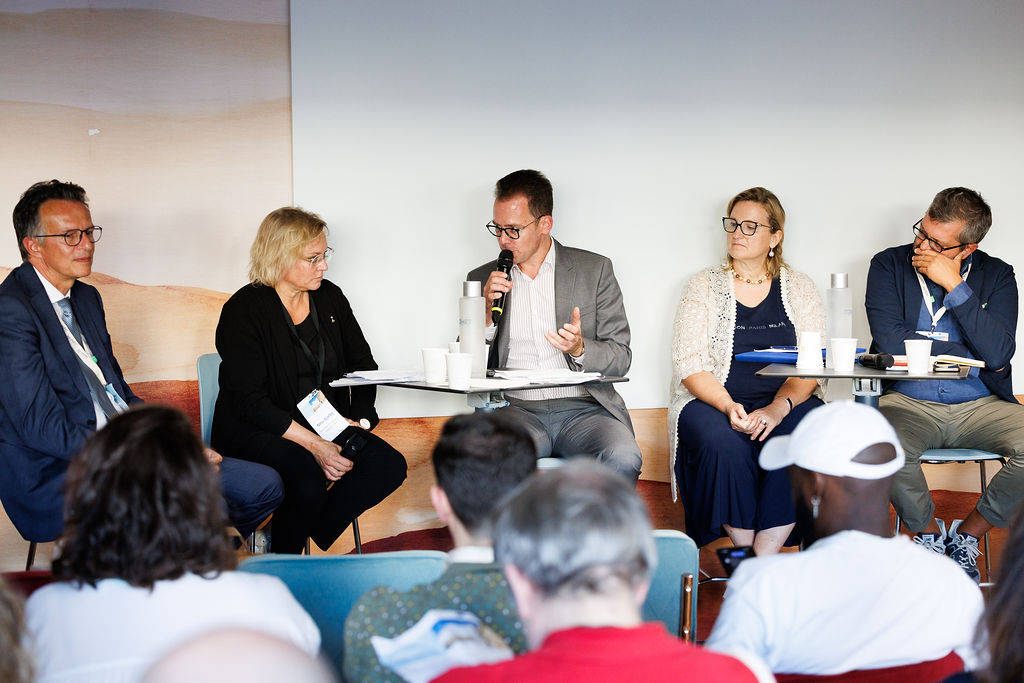
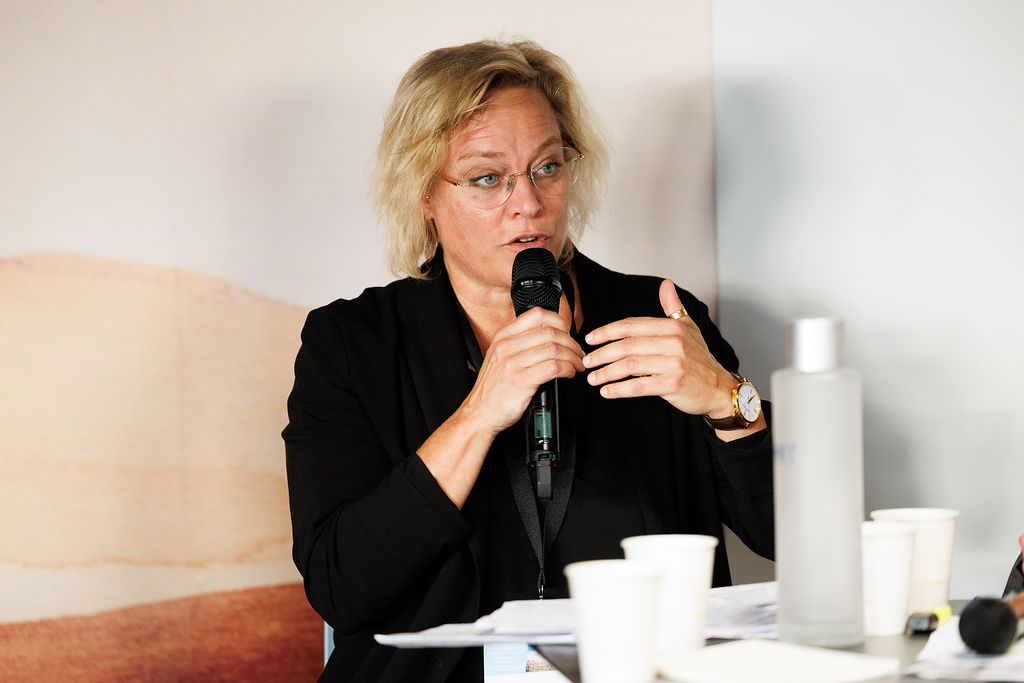
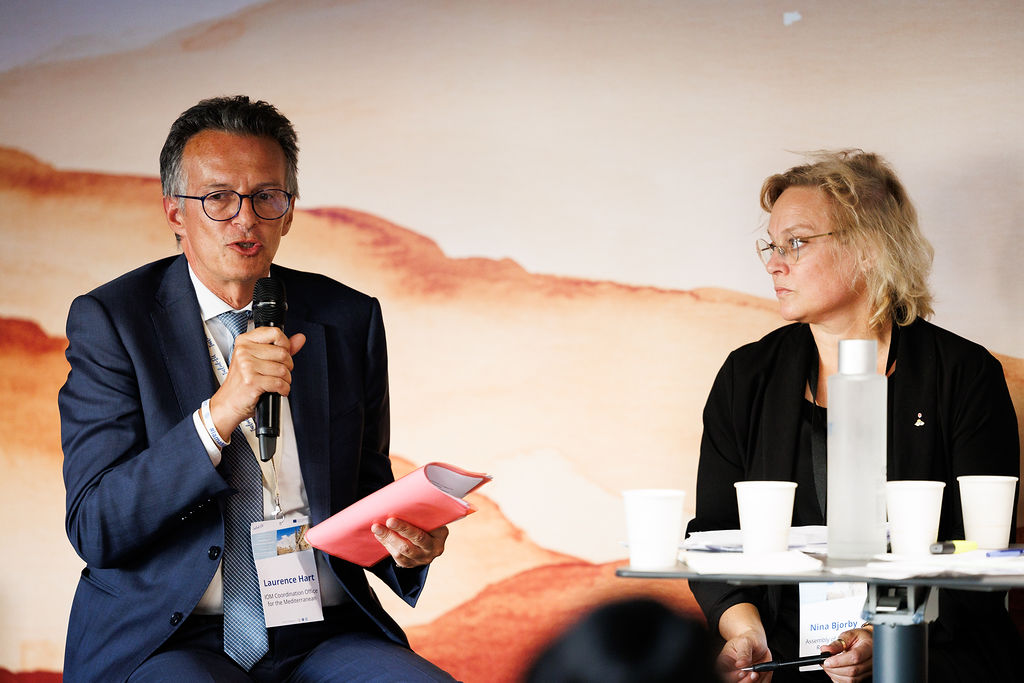
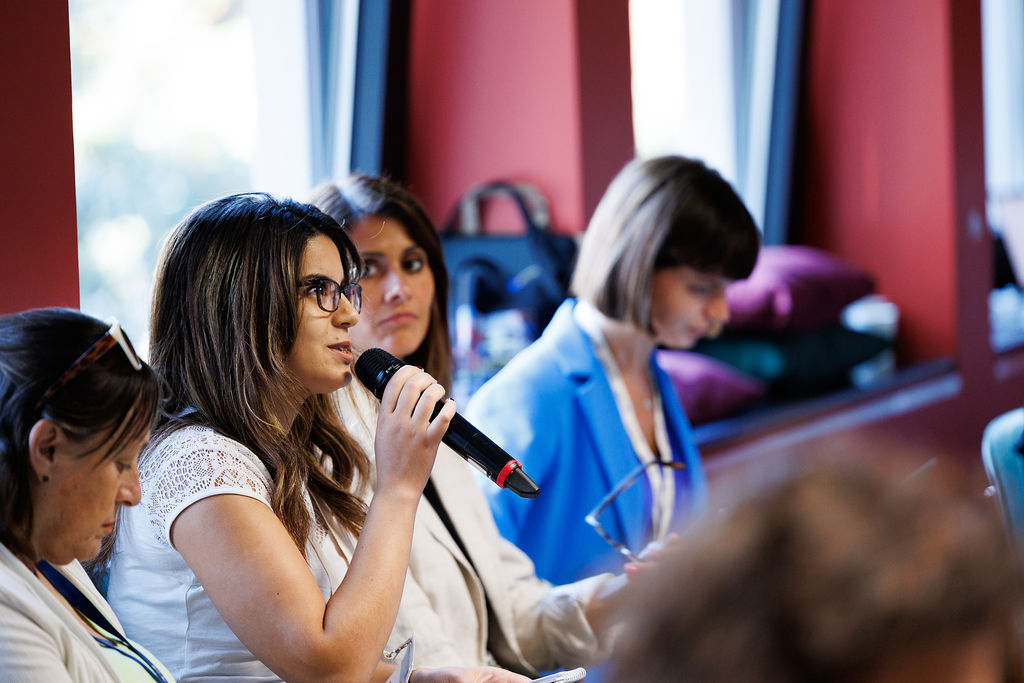
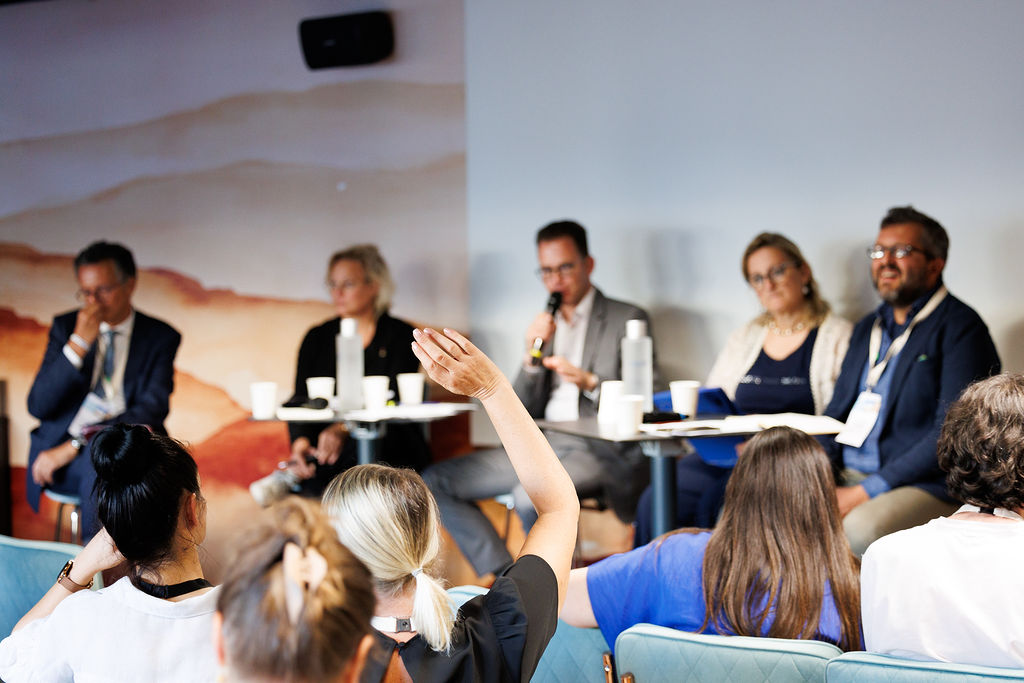
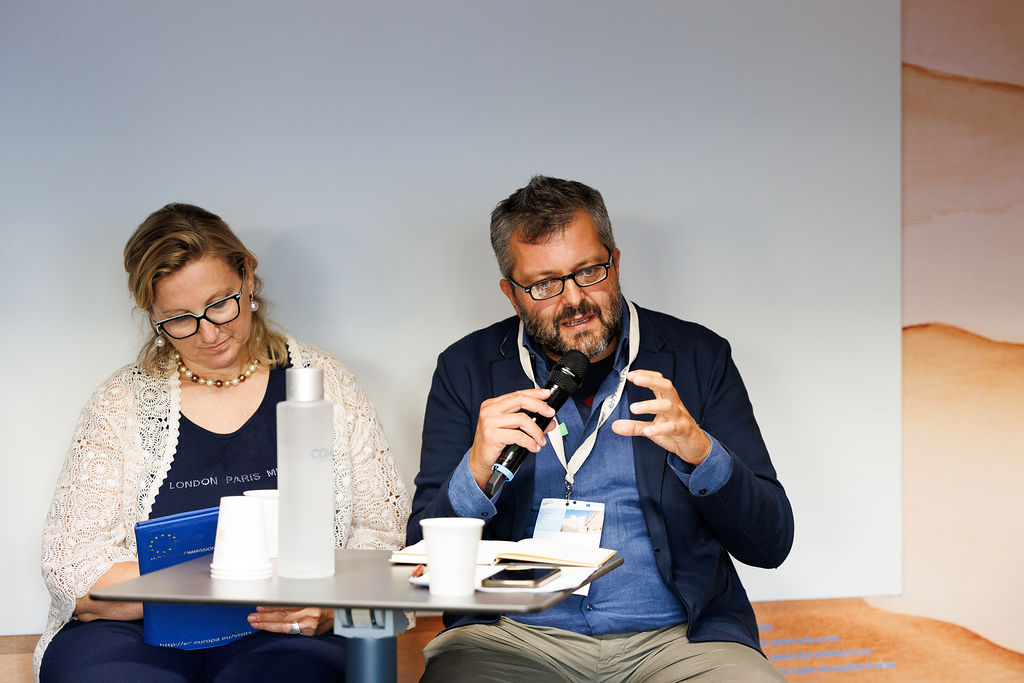
In particular, the politicians highlighted the following elements:
- Regional and local authorities have a crucial role to play in fostering welcoming and open communities where everyone can participate and fulfil their potential.
- Regions, with their public policies and service delivery, and their experience in engaging with other public bodies and local stakeholders, are uniquely placed to build cohesive communities.
- Regions are facilitators of multistakeholder collaborations.
- Participatory processes are essential for meaningful and effective policymaking.
A legacy of collaboration and inclusion
In conclusion, the Includ-EU final event marked a significant milestone in promoting collaboration, knowledge sharing, and inclusion in Europe. It showcased the achievements of the project and offered valuable insights for future integration policies. By embracing diversity and holistic integration, Includ-EU laid the foundation for more inclusive and cohesive European societies. The project’s legacy is one of collaboration, innovation, and a commitment to leaving no one behind.
More resources
- Presentations about the Includ-EU results;
- Event pictures: check our event photo gallery to re-live the warm atmosphere of the conference;
- 2-Pagers about the Project outputs and the pilots: Gain deeper insights into the Includ-EU project and its pilot initiatives through our concise 2-pagers;
- Video playlist is available on YouTube;
- Overall recordings of the final conference.
Do you want to share your project with our community and stakeholders?